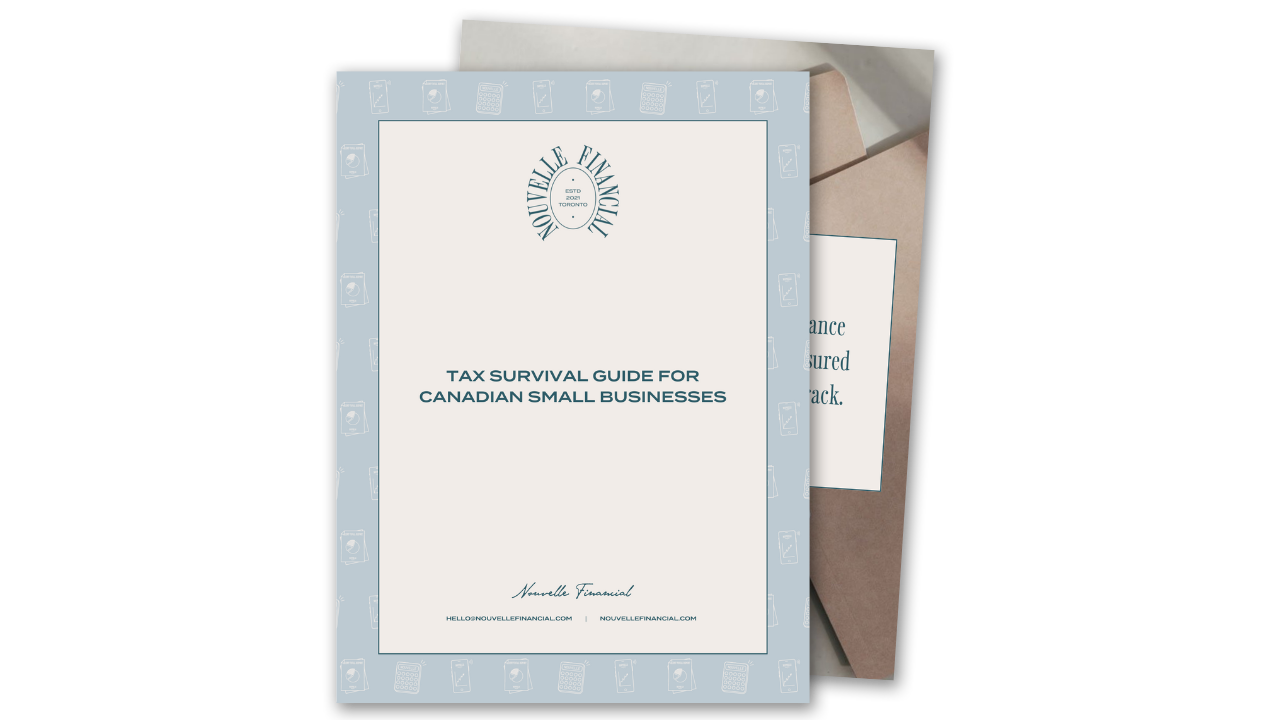
Vehicle Expenses: How they work and what you might be missing
Let's talk business mileage! How does the deduction work? What counts as business miles? How can you track them? What's the best app, or do you need one at all?
New here?
I’m Amelia, a Toronto-based accountant dedicated to supporting women-owned businesses. My main purpose is to help you know your numbers, increase profits, and avoid mistakes when it comes to the numbers side of your biz.
Whether it’s taking it off your plate, helping you DIY with ease with my Sole Prop Starter Kit, or increasing your financial awareness—I’m here to make it simple.
Be sure to sign up for free monthly bookkeeping & tax reminders sent straight to your inbox to be sure you stay on track and never miss a deadline.
How you claim vehicle expenses depends on your business setup—here’s what you need to know.
Sole Proprietor:
The method for sole proprietors allows you to deduct the business-use percentage of actual auto expenses, including gas, maintenance, insurance, lease payments, or CCA (a specialized calculation of the cost of your vehicle over time). To determine the business-use percentage, you track all miles driven and divide business miles by total kilometres driven.
Make sure to note your odometer reading on January 1st before you start tracking, and again on December 31st to calculate your total mileage for the year.
Corporation:
When it comes to vehicle expenses for a corporation in Canada, how you deduct them depends on whether the vehicle is owned by the corporation or by you personally.
If the Vehicle is Owned by the Corporation:
-
The corporation can directly deduct the full vehicle expense like gas, insurance, maintenance, and other related expenses.
-
These expenses are deducted based on actual costs rather than business use percentage since the corporation owns the vehicle.
If the car is owned by the corporation, the corporation can claim the actual vehicle expenses (fuel, insurance, maintenance, etc.) on its tax return. In this case, the business owner cannot claim mileage for business use of that vehicle.
If the Vehicle is Owned by the Business Owner (Personal Vehicle):
If the vehicle is owned personally by the business owner, the corporation can reimburse the business owner for the mileage driven for business use. Reimbursement is based on the CRA's per-kilometre rate, which is $0.70 for the first 5,000 km in 2024 and $0.64 for any additional kilometres.
To determine the business use, track the total kilometres driven, then apply the CRA's per-kilometre reimbursement rate to the business kilometres. The rate changes slightly each year, so be sure to check for the most up-to-date numbers.
Here’s the step-by-step breakdown:
1. For the first 5,000 km: 5,000 km × $0.70/km = $3,500
2. For the remaining 1,000 km: 1,000 km × $0.64/km = $640
3. Total reimbursement: $3,500 (for the first 5,000 km) + $640 (for the next 1,000 km) = $4,140
Just remember, the reimbursement isn't considered taxable income for the business owner as long as it follows the CRA’s prescribed rates and is properly documented.
You must log mileage in either scenario (with the exception of a vehicle owned by the corporation, where the corporation owns and maintains the vehicle for business purposes).
Tracking your mileage is simple. You just need to note the date of your trip, where you went, the business purpose of the trip, and the KM driven.
When you get the Small Biz Starter Pack, a downloadable mileage log is included that can be accessed on your smart phone and allows you to easily track KMs without needing to pay for an app. It does all the calculations for you, whether you choose the actual method or the standard mileage.
The best time to log KMs is when they actually happen so you don't forget or have to go back and figure it out later. Drop your destination in your GPS and take the calculation from the round trip and drop them in your mileage log. Then, you can forget about it until tax time when you pull the information from your log to help save money on taxes.
What counts as business mileage?
Simple! Anything that you're doing for business!
Examples are:
-
business meetings
-
networking events
-
shopping for office supplies
-
trips to the post office
What doesn't count as business mileage?
Commuting to work does not count as business miles. Commuting is going from your home to your regular place of work. So if you rent an office or work for one client and make the same trip daily, unfortunately that is not counted as business miles. Traveling between clients or to different clients does count. This applies to both employees and self-employed.
Something to be aware of.
If you're a sole prop, you don't pay for gas, oil changes, auto tag renewals, or car payments from your business. Those are all included in the business-use percentage of actual auto expenses allowed to deduct and claiming both can get you in hot water with the CRA.
What is NOT included in that calculation are parking and tolls so be sure to pay for those from your business account when traveling for business.
What's Next?
Be sure to sign up for free monthly bookkeeping & tax reminders sent straight to your inbox to be sure you stay on track and never miss a deadline.
Ready to take control of your books and taxes? Book a connection call with us today to learn how we can support you and your business.










